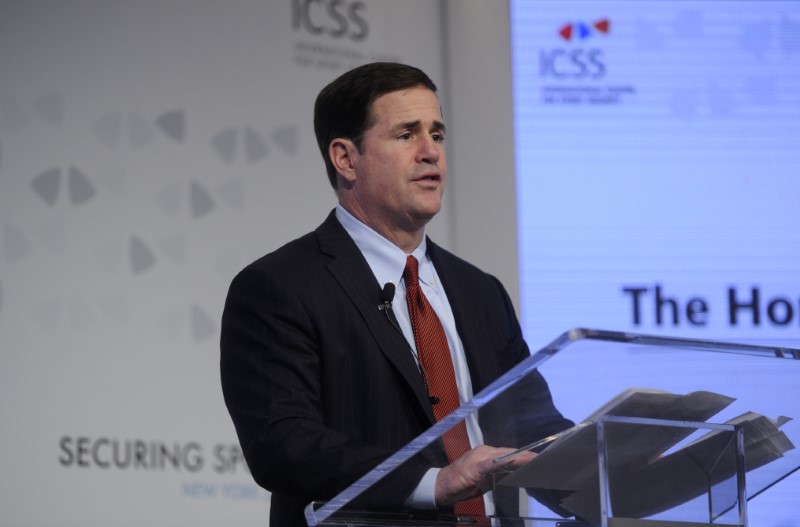By David Schwartz
PHOENIX (Reuters) - Arizona Republican Governor Doug Ducey on Friday signed into law legislation intended to crack down on opioid abuse, calling it vital to combat an epidemic felt statewide and across the nation.
“We’ve all heard the first person stories of individuals who have been impacted,” Ducey said at a signing ceremony. “But there are so many other stories we haven’t heard because the individuals impacted didn’t survive. This bill is for them.”
The legislation includes new regulations that will limit initial opioid prescriptions to five days and set a maximum of 30 days for certain patients receiving highly addictive painkillers.
State officials blame opioids for more than 800 overdose deaths in Arizona since June.
Other measures call for $10 million to be spent treating opioid abusers who are underinsured and ineligible for Medicaid. A controversial provision holds harmless those reporting potential overdoses.
Ducey called the package a comprehensive model for other states looking to address what has become a nationwide crisis.
The plan was unanimously approved by state lawmakers late on Thursday, in a rare bi-partisan manner, after Ducey called legislators into special session on Monday.
The final measure was nearly identical to one proposed by the governor, who has made opioid abuse and overdoses a focus of his administration. Last June, Ducey declared opioids a public health emergency and asked state health officials to study ways to address the problem.
Despite the unanimous final vote, some lawmakers raised concerns about the unintended consequences of the state becoming more involved in doctor-patient issues, fearing it may hurt individuals needing opioids.
Also at issue was the impact of a so-called Good Samaritan law that will grant immunity to people who call 911 to report a potential overdose.
Arizona’s effort is the latest in a multi-pronged attack nationwide to combat a problem that claimed more than 42,000 lives in 2016, according to U.S. Centers for Disease Control and Prevention figures.
In a flurry of lawsuits, drug makers have been accused by U.S. governments of pushing addictive painkillers through deceptive marketing and wholesale distributors of failing to report suspicious drug orders.
A multi-state investigation by attorneys general was launched to determine whether companies that manufacture and distribute prescription opioids have engaged in unlawful practices.

New York City on Tuesday joined the battle, filing suit against eight companies that make or distribute prescription opioids, blaming them for fueling a deadly epidemic afflicting the city.